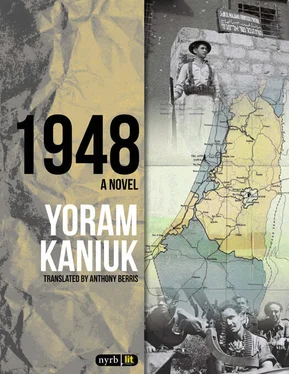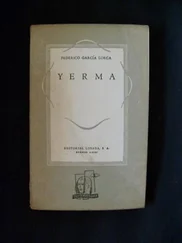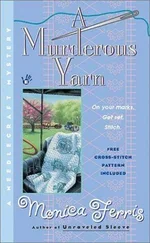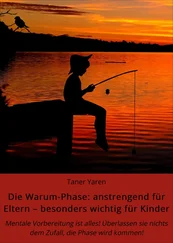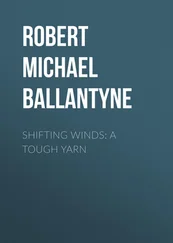Beads of cold sweat dripped from my forehead. I was parched. The guys stood by the wall and were silent. I pissed my pants and the Thompson was shaking. N. burst out laughing. Listen, you Arab ass-kisser, if you shoot the kid then I won’t slaughter him and if you don’t shoot him, I’ll slaughter his dead mother too, who’s maybe not even dead. He kicked her. She moved and he said, The whore isn’t dead, look at how the Arabs die without dignity. And you, kill your poor kid already. Two minutes. If you don’t shoot the kid, I’ll start in with my knife.
Everybody stood waiting. I was standing there with all my seventeen and a half years and aimed the Thompson at N. I took careful aim, I felt the tension, my hands weren’t trembling now, I knew I was right, that mean rightness strengthened muscles in me I didn’t know I had, and I could hear the blood flowing in my veins and I thought of my father and my friends from Hashomer Hatzair, with their binational state, for which back then, and even now, I had the only conceivable solution but one I couldn’t live with, and I aimed at N. and a shot was heard. A cloud of dust rose, and N. was standing there alive and well, but the boy fell, like a butterfly at first and then dropped like a stone. The bullet was aimed at N., I know I was aiming at him, but it was the boy who was killed. I wasn’t the best shot in the world but not the worst either, and the range was only a little more than two meters. The bread in the taboun oven stank. Through the window I saw a dog running and an extinguished bonfire and vines and a crooked tamarisk and the mountains beyond it, and I saw Bab el-Wad in whose hills we would be buried when we died. I put out the taboun with a bucket of water that stood there, I covered the boy’s body with a bloodstained blanket, I kissed his face, and moved his mother toward him and covered her with my paratrooper jacket, and went outside.
I joined the guys who’d gone back into the shade of the tree and we lay down. Nobody said a word. N. came outside trembling and tried to hug me but I shoved him away. They looked at us, waiting for something, I didn’t know what.
Later we went back to Kiryat Anavim. We buried two dead, including Raffi who’d been hung on the tree, and I went into the tent and came out and went to one of the senior officers, if that’s what you could call them, and told him what had happened. He asked who’d been killed. I said I wouldn’t tell him. For some reason or another he didn’t realize that I’d murdered a child. The senior officers barely knew the fighters, we died unnamed. We kept quiet and went on fighting and dying, and the officers, except for a few, were busy being officers.
After a day on the grass I didn’t submit to indifference and brought charges against N. What charges! There wasn’t even a state yet. We were partisans. I gathered everybody on the lawn. Benny Marshak came, who didn’t really want the hullabaloo but realized that as the political commissioner he had to go along with me, and he ordered that a trial be held. Then, reluctantly, everybody sat down and smoked and I related what had happened. They pitied me for being such a fool. N. sat there smiling silently. When I’d finished, he got up and told a story. He told us that once, near his small town, there was a Hashomer Hatzair kibbutz, and the kibbutzniks wanted amity among nations and used to invite the Arabs to their parties in the kibbutz dining hall. They’d dance with them. They liked them. When he spoke about how he peeled a cucumber, we’d drool. And he went on, There was one Arab, the nicest of them, whose name was Jamil. The kibbutz idiots would kiss Jamil for the world of tomorrow and amity among nations. And they’d bring him to their tents and feed him delicacies and try and teach him to read to bring culture to the oppressed. Then the fighting broke out and a gang attacked the kibbutz and who d’you think it was led by? Jamil. He knew every path and every tent. That amity among nations led them to the tents. He was the greatest ever in amity among nations, ala keyf keyf keyfaq —the great, great, greatest ever!
N. was such a good storyteller, he was the shaman of an ancient tribe, and smart, and everybody laughed and called me Jamil, and to this day there are some who meet me in the street, and say, Ahlan ya, Jamil —Hey there Jamil, and they hug me.
Afterwards we carried on singing. Nobody from the platoon, including N., ever told which of us had killed the boy at Beit Yuba. And I didn’t want to remember. I asked those who came out alive what had happened and they said, Enough, Jamil, nothing happened, and it’s expressly written that “Thou shalt not kill an infant,” and if the patriarch Moses says so, why would anyone kill?
After the war that child became an icon for me. N. told me, That’s not the important thing, Yoram Kaniuk — that’s what he always called me. What is important is that there’s a state and we established it in blood, and yes, there were some difficult moments but we were as full of holes as Swiss cheese, and d’you know how they make Swiss cheese? They take holes and wrap them in cheese. And who were we? The living dead, we were the holes in bagels and the holes in cheese. A kid, not a kid, so what?
But I killed him, I said, and he replied, That’s not certain. So who killed the boy? The Prophet Elijah? He said, You’ve shed enough blood, you took a couple of bullets, enjoy being alive. After all, your poet Alterman wrote, “Do not say from dust I came / From the living who fell before you, you came.”
I have related this stark event dozens of times; I did not tell about the warm, mournful smell that was there. Or the smell of blood. Or the shame. Not about the sweetness of squashed figs. Not about the misty morning with its scent of jasmine. I have not told about how, immediately afterward, I shaved my head with an old razor blade that left furrows in my scalp, and not one of the guys said a word about my unsightly baldness. What they knew, they kept to themselves. And I, too, kept quiet.
Afterward there were more battles, there was no time to sleep. As I write these lines I am very old and my mind is empty. I am the hole in the bagel. I do not remember more than what I write here, and perhaps I have invented some of my memories with the passing of the years. I know I fought at Siris, Beit Makhsir, the Castel, Nabi Samwil, Qaluniyya, Mount Zion, Saint Simeon’s Monastery, and in other places, I’m sure I was there, inside my closed eyes I can see those battles, but I can’t see myself in them. Did I really see what I saw? And where was the “me” who is present today, with all those days that I locked away inside me? And could have I dreamed it all?
I recall how one morning we’d come back from someplace whose name I’ve forgotten, and a cold wind was blowing. We walked through Jerusalem. Jordanian shells that came from the hills to the south of the city were falling all the time. People today don’t know the extent of Jerusalem’s suffering back then. In Rehavia, two people standing in line for water, behind a cart harnessed to a whinnying horse, were killed. The water spilled onto the sidewalk from the tanks on the cart and the horse took fright and overturned the cart, and people tried to soak up the water from the sidewalk with their headscarves and squeeze it out into their mouths, and a child licked the paving stones. The windows of the houses were darkened. We walked by a house whose wall bore an advertisement for the dancer Rina Nikova, and it said that she would be appearing at the Zion Cinema and that the audience should bring candles.
I was then sent to the headquarters of David Shaltiel, the Haganah commander in Jerusalem. On the way, by Notre Dame, I was accosted by a fat monk. He looked at me with jovial Christian compassion and said, You speak Hebrew good, you are fighting losing war, only Jesus will reign in Jerusalem, and he gave me a book called Light and Happiness so I’d see the light. I laughed because who’s the kid who’d want to see lights from monks. Laughing wasn’t very nice of me, the man looked pitiful because his God had got stuck here in a Valley of the Shadow of Death that had nothing to do with Him. I quoted Heine to him, who’d written, “The defeated Judah wrought a terrible vengeance on Rome and set Christianity against it, and its imperial battle cry sank to the praying whimper of priests and the trilling of eunuchs,” or so my father used to say.
Читать дальше
